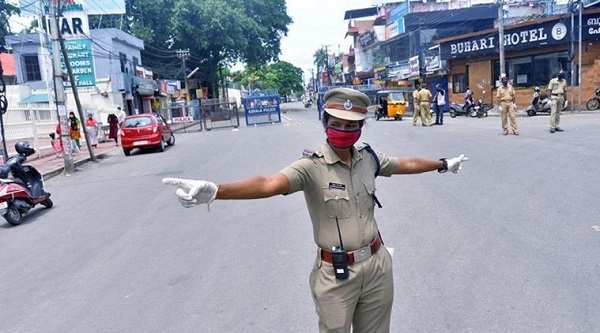Kerala triple lockdown- Why don't other Indian cities adopt it?
Total Views |
The state of Kerala has always been a step ahead in preventing the spread of the corona virus. In its latest move, the state has amended the State Epidemic Disease Ordinance to extend the Covid-control regulations till July 2021. This means, people will have to wear masks, maintain social distancing and avoid large gatherings till July 2021. The District Collectors have been instructed to ensure due compliance of the regulations.
While, the week-long stringent lockdown in Thiruvananthapuram comes into force this morning, the shutdown comes after the capital city recorded 22 of the 38 Covid-19 patients who were infected through local transmission in the state yesterday. It has been seeing a surge in coronavirus cases through unknown sources of infections, especially in the capital. Earlier the state of Kerala had made its 'Kerala model' go rounds around the world to contain the Corona virus spread. The swift action of the state government in identifying the possible social contacts and subsequently tracing them started showing results by early April. The sustained efforts taken by the authorities had helped them carefully draft the exit policy from Lockdown.

The state's COVID-19 response has received international attention in recent months, but it says that the upsurge in cases is following the return of hordes of migrants from across India, and overseas. The objective of the triple lockdown implemented in Thiruvananthapuram is, reportedly, to break the chain of transmission, and will include the complete suspension of all movement, and business activities, excluding those of essential services. All roads, barring one leading directly to the city, are to be blocked off, with law enforcement personnel stationed around the clock to prevent movement of people. ATMs, petrol pumps, pharmacies, grocery and vegetable vendors, hospitals, and cooking gas agencies have all been deemed essential services, and will be allowed to operate within particular windows.
Moreover, trucks carrying essential supplies, along with workers engaged in utilities and sanitation services will be allowed to move around the city, granted they are carrying signed declaration forms describing the nature of their work. Offenders are to be fined. While no public transport will be operational, special transport will be organised for individuals travelling to or from railway stations and airports. Educational institutions have also been ordered shut, with public examinations postponed. The lockdown in Thiruvananthapuram is the first one comparable to the national lockdown enforced by the central government in late March. Following the unwinding of restrictions, India's case numbers have continued to rise steadily, and the nation has now overtaken Russia to become the third most-affected country in the world.
However, it is India's urban centres that have turned into the most fertile breeding grounds for the virus. Mumbai, for instance, has recorded 83,237 of Maharashtra's over 2 lakh cases. Delhi, the nation's capital, is the India's worst hit city with total confirmed cases rising to over 99,000, following 2,505 new cases recorded on Sunday. Meanwhile, Bengaluru, which had been under a complete 33-hour lockdown since Saturday, reported 1,235 cases on Sunday, its highest daily spike. Sunday's figures made it the fourth consecutive day that the city witnessed a new daily high in fresh COVID-19 cases. The city now accounts for 9,580 of Karnataka's confirmed 23,474 cases.
In India, people seem to be more worried about following the rules to avoid paying fines than they care about their health by own. For eg, in cities like Pune, Jalgaon, Amravati, Baramati, and more the authorities have made compulsory for people to wear masks against Rs 500 fine. And that the masses are more worried about the fines, indirectly and unknowingly serving the purpose of the authorities to prioritise the mass health and safety movement.
With coffers dwindling, state governments have had to make an, arguably, impossible decision between easing restrictions and allowing business activity to resume, and prioritising public health and safety. Given the sustained and alarming rise in COVID-19 numbers in India's metros, the possibility of more stringent lockdowns with a view towards breaking the chain of transmission, do not entirely seem improbable. Whether or not the other states' agree or are willing to apdopt this new Kerala model, it will be wise for them to impose stricter restictions by December 2020 at least to break the transmission chain.

